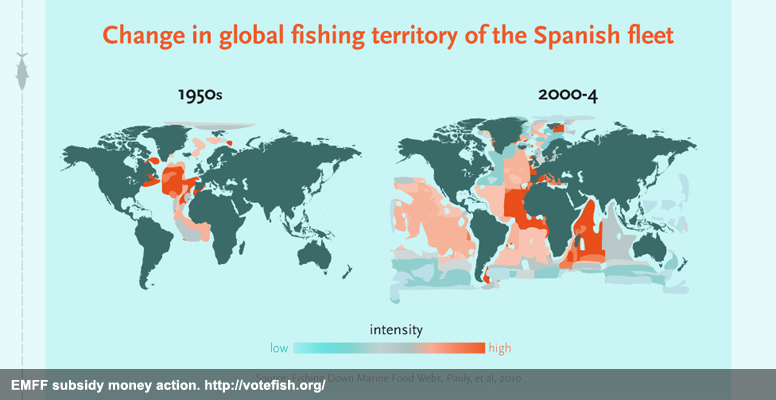New European Fisheries Policies May Help End Overfishing
Late last month the European Union moved closer to providing greater protection for its fisheries—a step that may well result in better control of sometimes rampant overfishing, reduced fishing fleet subsidies, and better data collection so that science-based decision-making results in sustainable fishing rules and regulations.
The key vote in the European Parliament on the new European Maritime and Fisheries Fund resulted Oct. 23 in a strong majority of the 766 members (522-151) voting to overturn the proposal from its Fisheries Committee to reintroduce harmful subsidies for the construction of new vessels. Furthermore, a majority also supported a significant shift of additional funds into data collection, control, and enforcement, alongside strengthened provisions to withhold funding when fishermen or member states don't comply with Common Fisheries Policy rules. These measures are particularly important to supporting an end to EU overfishing, defined as taking fish from the seas than they can be replaced.

Another key vote by the parliamentarians, however, resulted in further subsidies for engine replacements and other measures known to encourage overfishing. Yet overall, these votes are another step toward ending EU overfishing—providing that the Council of Fisheries Ministers from the EU's 28 member states agrees to the terms approved by the European Parliament.
The European Parliament, represented by the rapporteur Alain Cadec, now has to reach an agreement with the Council of Fisheries Ministers, which shares decision-making on fisheries. These negotiations will start Nov. 7, with a political deal expected by the end of the year, and with legislation expected to be signed by April 2014 ahead of EU parliamentary elections in May.
A deal cannot come soon enough. After years of fueling overfishing, taxpayers' money could instead help support the transition to sustainable fishing in EU waters. Too many EU fisheries are unsustainable, unprofitable, and dependent on public subsidies. Assessed fish stocks are 47 percent overfished in the Atlantic Ocean and 88 percent overfished in the Mediterranean Sea. EU fisheries subsidies contribute to fleet overcapacity, resulting in some fisheries in EU waters experiencing overfishing at two to three times their sustainable level.
So far, hundreds of millions of euros have been spent on building new fishing vessels or new engines increasing pressure on depleted fish stocks and neglecting research, data collection, control, and enforcement. But after more than four years of debate within and among EU institutions, the Council of Fisheries Ministers and the European Parliament agreed May 30 to a political deal on reform of the Common Fisheries Policy. In particular, they agreed to:
- Seek the recovery of fish stocks so that they can reach sustainable levels.
- End overfishing by 2015, where possible, and by 2020 at the latest.
- Sharply decrease fish bycatch, the incidental catch of nontargeted species, and discards, fish that are thrown overboard dead or dying.
- Secure steps to eliminate overcapacity in the EU fishing fleet.
Then on July 10, members of the European Parliament's Fisheries Committee reviewed the future funding vehicle for fishing policy in the EU, the European Maritime and Fisheries Fund, or EMFF, which is intended to support implementation of the reformed Common Fisheries Policy. In seeming defiance of the May 30 deal, members of that committee voted, by a margin of one, in favor of subsidies for a number of measures, including funds to construct new fishing vessels, which have been widely shown to contribute to overcapacity.
What's next?
The vote late last month by the entire European Parliament overturned most of the committee's decisions, but the legislative process is not over. Cadec, the rapporteur, must now reach agreement with Lithuanian Fisheries Minister Vigilijus Jukna on a final policy accord governing the new fund.
More information:
- European Parliament votes to improve fisheries data collection, control and enforcement.
- “Invest in Fish” action.
- NGO joint position on the European Maritime and Fisheries Fund in advance of the vote.
- “Debunking the Myths of Fisheries Subsidies.”
- Letter by 200 scientists calling on members of the European Parliament to vote for aid in support of an ambitious Common Fisheries Policy.
- Fisheries subsidies infographics.
- Animation: “End the Blind Spend.”











